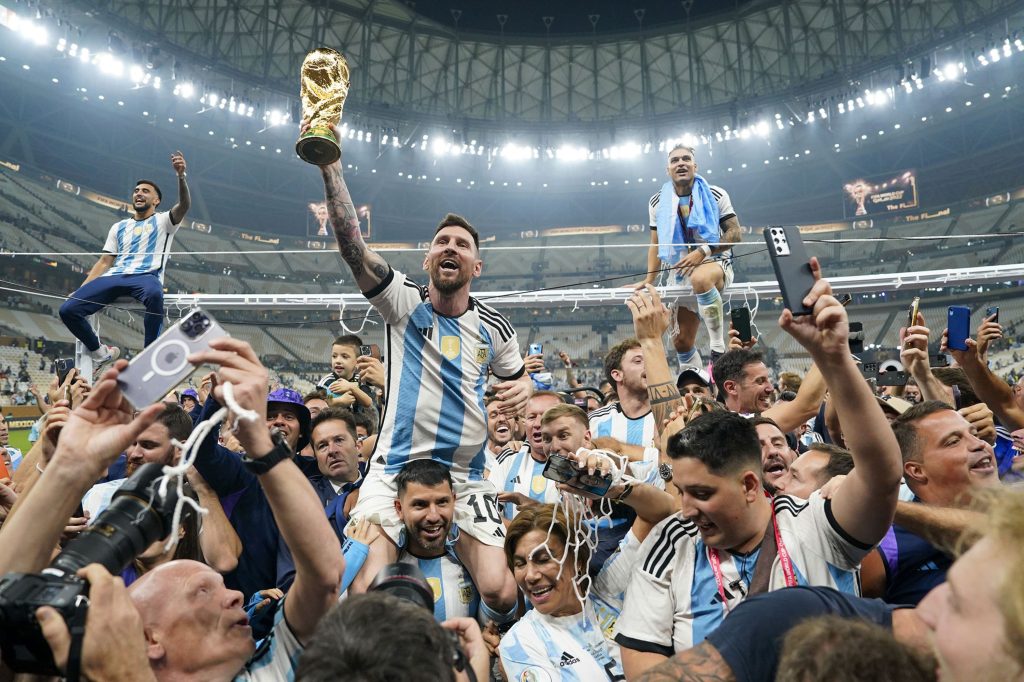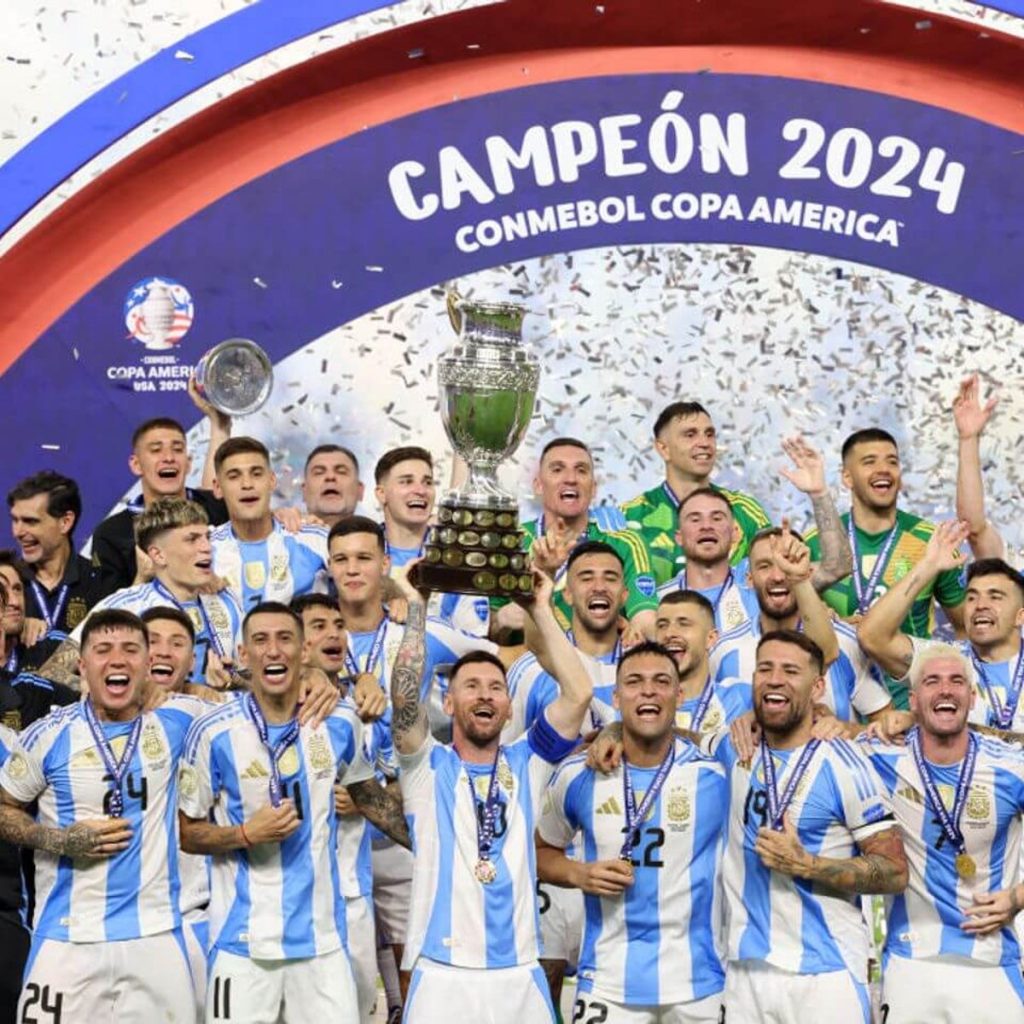
The Hardest Generation of Argentina Football Fans
If you were born in the 1980s, you lived through the most brutal era of heartbreak as an Argentina football fan.
You missed Diego Maradona’s legendary triumph in 1986. You were alive, but too young to comprehend it. Your first real memory? The devastation of 1990—your first heartbreak. But you held onto hope.
By 1994, it felt like Argentina was poised for glory. Maradona. Redondo. Batistuta. Goycochea. Caniggia. This team had everything. Surely, at 12 years old, you’d finally witness your nation lift the World Cup. But then—Maradona fails a drug test. Kicked out of the tournament. And just like that, your brutal initiation into Argentina football fandom was complete.
The suffering only grew. 1998? Another gut-wrenching exit. 2002? Even worse. Year after year, Argentina had world-class talent dominating European football but couldn’t put it together on the biggest stage.
Surely, the 2004 Copa América would be different. Brazil rested Ronaldinho and Ronaldo—this had to be Argentina’s moment. The world was watching as football globalization exploded. You sat glued to Telemundo in the U.S., heart pounding. It was the 90th minute. Argentina led 2-1. This was it.
Nope.
Adriano equalized in stoppage time. Brazil won on penalties. More pain.
By 2006, Argentina had assembled a squad brimming with talent—and a young prodigy named Lionel Messi. Fresh off winning the U-20 World Cup, he was ready to take over. But the World Cup draw was brutal: Germany in the quarters, Italy in the semis if they survived. And then, the unthinkable—Messi left on the bench for the entire quarterfinal against Germany. Eliminated. More pain.
Then came 2010. Maradona, a god as a player, was at the helm as coach. Every Argentina fan adored him, but deep down, we knew he wasn’t the man for the job. Argentina crashed out in the quarters.
But 2014? Alejandro Sabella, a meticulous tactician, got them to the final. A dream draw. No elite opponents until Germany. Messi at his peak. This was the moment.
Nope.
Higuaín missed a one-on-one. Palacio botched another. And then, the dagger—Götze, 113th minute. More pain.
Brazilian fans reveled in Argentina’s misery. In Rio de Janeiro, a mural still reads: Germany 1 – Argentina 0. The trolling never stopped.
But hey, at least there was the Copa América, right?
2015? Lost the final to Chile.
2016? Lost the final to Chile. Again. On penalties. Again.
The heartbreak was so relentless that Messi retired on the spot. He couldn’t take the media scrutiny any longer. Argentina’s greatest player had been beaten down into quitting.
Five minutes later, he un-retired. A new coach took over. But the 2018 World Cup turned into a disaster. Jorge Sampaoli lost control of the squad. A full-on mutiny. Argentina barely escaped the group stage before falling to France in the Round of 16. This was rock bottom.
Then, Lionel Scaloni arrived.
At first, the skepticism was deafening. Who was this guy? A former Argentina player, sure, but no real coaching experience. Yet, he built a staff of warriors—Walter Samuel, Pablo Aimar. He restored belief.
Then, in 2020, the unthinkable happened: Diego Maradona was gone. Argentina mourned.
But in 2021, something changed. The Copa América, relocated to Brazil, felt different. No fans in the stadiums—just the raw intensity of Argentina against the world. In the semifinals, Emiliano “Dibu” Martínez talked his way into legend, rattling every Colombian penalty taker. Argentina reached the final.
Ten Thousand lucky fans filled the Maracanã. Di María, Messi’s right-hand man for 20 years, struck early. Argentina held on. Messi collapsed to the ground. Champions at last.
Then came 2022.
By now, you know the story. The greatest World Cup final of all time. Di María’s goal—a masterpiece. The ultimate rollercoaster. But this time, the pain was different.
Because this time, Argentina won.
Scaloni? A legend.
Messi? A saint.
Dibu Martínez, Enzo Fernández, Lautaro Martínez, Julián Álvarez, Cuti Romero? A new dynasty.
No more tears of pain—only tears of joy.
The 2024 Copa América in the USA was a spectacle unlike anything the country had ever witnessed. From electrifying pre-game atmospheres to the relentless intensity of every match, Argentina embodied the essence of South American football—a fusion of skill, grit, and an unbreakable will to win.
Even when Lionel Messi left the final injured in the 66th minute, this squad of battle-hardened warriors and rising superstars refused to waver. They embodied a new era—relentless, fearless, and destined for greatness. In extra time, Argentina delivered a moment of brilliance, a sequence nearly as breathtaking as Di María’s goal against France in 2022. This time, it was Paredes to Lo Celso to Lautaro Martínez—a masterpiece of precision and composure.

Argentina defeated Colombia 1-0 to win the 2024 Copa América.
From heartbreak to dominance, from generations of near-misses to back-to-back continental glory—Argentina stands atop the football world. Messi’s legacy is cemented. A new dynasty is born.
The journey doesn’t end here. The 2026 World Cup looms on the horizon. Argentina is no longer chasing validation—they are the standard.



